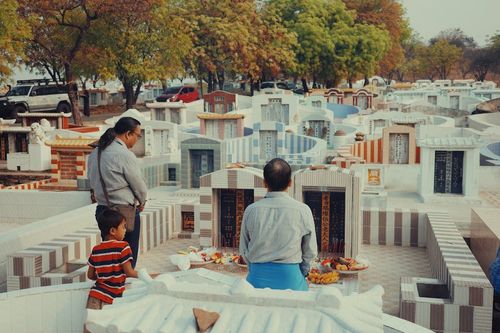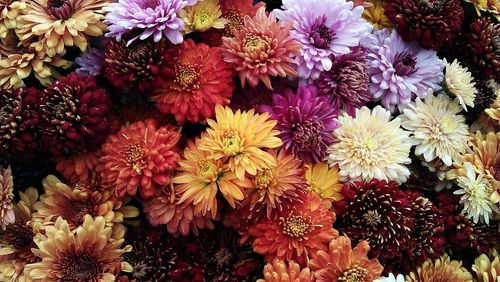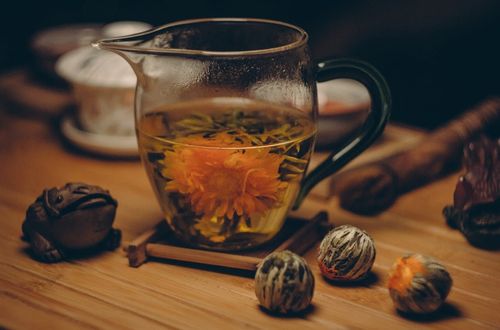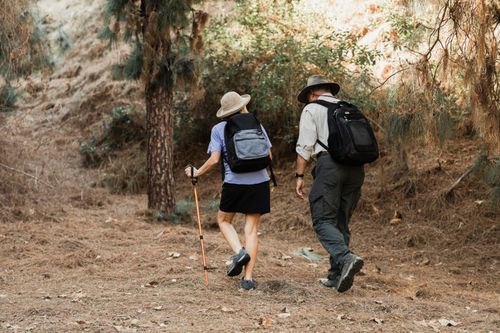Every year, the Chung Yeung Festival brings families together to pay respects to those who came before in a unique, interesting way: hiking up hills. It’s a day dedicated not just to remembering the past, but to feeling a deep connection—both to those who came before and to one another.
We don’t need to know all the details to enjoy the Chung Yeung Festival, but knowing the history can enrich your experience. Keep reading to learn what makes the Chung Yeung Festival so meaningful.

Photo by Tony Wu
What is the Chung Yeung Festival?
The Chung Yeung Festival, or Double Ninth Festival, takes place on the ninth day of the ninth lunar month, usually in October. This holiday centers on family, honoring ancestors, and keeping bad luck away.
The Chung Yeung Festival started over 2,000 years ago, is linked to beliefs about lucky and unlucky numbers. The term “double ninth” points to the two nines, seen as a good sign. According to legend, a man named Huan Jing, who warned of a coming plague, took his family to the mountains during the Eastern Han Dynasty (25–220 CE) to avoid danger. This event inspired the practice of climbing mountains and performing rituals on this day for protection.
When is the Chung Yeung Festival Celebrated?
The Chung Yeung Festival, or Double Ninth Festival, will be celebrated on October 14, 2024.
Why the Number Nine is Special in Chinese Culture?
The number nine is special in Chinese culture for a few key reasons. It is associated with strength and long life and in numerology, is associated with yang energy, which is considered active and positive. Nine, being the largest single-digit odd number, represents the ultimate yang. This is why it shows up in celebrations for a long life.
Phonetically, the number nine sounds like the word for “long-lasting,” so it makes it a popular choice for gifts and wishes. It also relates to Ming Dynasty Emperor Yongle, who built the Forbidden City. The palace has 9,999 rooms, symbolizing imperial power. Nine appears in art, poetry, and festivals like the Double Ninth Festival, bringing good luck and protection.
Chung Yeung Festival Traditions and Activities
The Chung Yeung Festival, also known as the Double Ninth Festival, is an important day in Chinese culture. Celebrated on the ninth day of the ninth lunar month, this festival brings families together in diverse ways. Here are some traditions and activities:
Hiking or Mountain Climbing: This practice is rooted in the legend of Huan Jing, who climbed a mountain on the ninth day of the ninth month with his family to avoid a deadly plague. So, climbing means rising above bad luck and is a great chance for folks to enjoy nature with loved ones.
Drinking Chrysanthemum Wine: People drink Chrysanthemum wine to stay healthy and live longer. In traditional beliefs, chrysanthemums help cool the body and boost health. The flower represents strength, therefore the wine becomes meaningful during the festival.
Ancestor Worship and Tomb Sweeping: Families visit graves, clean them, and leave food and incense as a mark of respect. Burning joss paper sends offerings to ancestors in the afterlife. This day is for sharing prayers and remembering family stories, reinforcing connections.
Kite Flying: People fly kites to let go of bad luck. It’s a fun family activity that connects everyone outdoors, meaning freedom and safety wishes as the kites fly high.
Eating Double Ninth Cakes (Chongyang Gao): These layered cakes are made from rice flour, and filled with nuts and fruits. Some Chongyang Gao cakes look like mountains, relating to the climbing tradition, and eating them is thought to bring good luck.
Gathering with Family and Sharing Stories: This festival reinforces family bonds as older members share family tales and histories. After paying respects, they enjoy a special meal focused on longevity and well-being.

Photo by saifullah hafeel
How Families Pay Their Respect to Ancestors During the Double Ninth Festival
The Double Ninth Festival, also called the Chung Yeung Festival, reflects Chinese values on family, remembrance, and gratitude. Here are some examples of how families pay their respects:
- Grave-Site Visits: Families gather at the graves of their ancestors. They clean the area, sometimes clearing debris, and tidying up gravestones—everything needs to look neat and proper.
- Offering of Food and Drinks: At the gravesite, families bring food, tea, or wine. It’s common to include favorite dishes of the deceased to feel a connection, and chrysanthemum wine, known for its importance in honoring those who have passed, is poured out.
- Incense and Joss Paper Rituals: Incense burning is a big part of the tradition. The smoke from incense is thought to carry messages to ancestors, while families may burn joss paper, which is similar to money or goods and meant to provide comfort to the deceased in the afterlife.
- Traditional Prayers and Silent Moments: Families often kneel or bow at the graves and say prayers. This moment of silence allows families to reflect on their ancestors and show respect.
- Remembrance and Family Bonding: This festival is also a chance for families to connect. Younger members learn about their heritage through stories shared by elders, creating a bond. Sometimes, they even gather at home for a meal afterward to remember and celebrate.
- Additional Traditions for Ancestor Worship: In some areas, families light lanterns or release paper boats on the water. These actions are said to guide spirits. Flying kites is also popular, seen as a way to let go of worries and offer prayers for safety.

Photo by MYKOLA OSMACHKO
Why Hiking is a Central Tradition in Chung Yeung
Hiking on Chung Yeung has a symbolic meaning. It goes back to a story from the Han Dynasty about a wise man named Huan Jing. Foreseeing a plague, he took his family to a high mountain, where they drank wine and were spared from the disaster below. This act of climbing came to symbolize rising above problems and personal growth.
The hike brings families together, strengthens bonds, and teaches respect for nature. It also helps people clear their minds and think. Plus, climbing mountains, which promotes health and fitness, is a perfect fit for the festival that celebrates longevity and well-being.

Image by rawpixel.com on Freepik
How the Chung Yeung Festival Is Celebrated Today
The Chung Yeung Festival has maintained certain ancient practices while adding some new ways of celebration that differ from region to region. Here’s a glimpse into how the festival is observed nowadays:
Hong Kong
The Chung Yeung Festival in Hong Kong has a few key ways of being celebrated today. First, families visit ancestral graves. They clean the graves, burn incense, and offer food, showing respect for loved ones. Many go to cemeteries on hills, such as Cape Collinson Cemetery and Pok Fu Lam Cemetery, combining rituals with hikes.
Hiking is another big part of the Hong Kong Chung Yeung Festival, as it is linked to good luck and staying safe. Popular spots include Lion Rock and Victoria Peak.
Some drink chrysanthemum wine, believed to ward off bad luck. Families gather for meals after outdoor activities. Lastly, schools hold events to teach about the festival’s meaning, and there are efforts to protect nature during celebrations.
Mainland China
In rural China, honoring ancestors is key, with families also cleaning gravesites, burning joss paper, and offering food. Urban dwellers may choose Columbaria due to space issues, visiting these memorials instead. As chrysanthemums bloom in autumn, festivals pop up in parks where they can admire these flowers. Many sip chrysanthemum tea, although some still toast with the traditional chrysanthemum wine.
Since the 1980s, the festival has also focused on seniors, with events designed to celebrate and respect the elderly.
Taiwan
In Taiwan, people keep with this millenary tradition by visiting graves and bringing food offerings. Family meals follow the rituals, and hiking is also a favorite activity. Families trek to places like Yangmingshan or Alishan, often pairing the hike with picnics or camping. Some regions even host chrysanthemum exhibitions, while many enjoy drinking chrysanthemum tea as a nod to the old customs.
Other Regions with Chinese Communities
In countries like Malaysia, Singapore, and Indonesia, the festival is well-known but not observed with the same intensity as in Hong Kong or mainland China. Some Asian families honor ancestors at home, light incense, and offer simple foods. Outdoor activities remain popular, with parks serving as spots for families to enjoy the day. Likewise, community events might include traditional food fairs, giving a chance for people to gather and celebrate together.
Are the Chung Yeung Festival and Qingming the Same?
No, the Chung Yeung Festival and Qingming Festival are different Chinese holidays, although both are similar in some ways. Chung Yeung Festival is on the 9th day of the 9th lunar month, in October, and celebrates strength and longevity with mountain climbing and protection rituals. Qingming Festival, often called Tomb-Sweeping Day, around April 4th or 5th in spring, focuses on ancestor worship as families visit and clean tombs, offer food, and burn incense.
While both festivals honor ancestors and include outdoor activities, Chung Yeung focuses on health and strength, while Qingming is mainly about remembering the dead and cleaning tombs.
Stay Connected This Chung Yeung with Yoho Mobile
Planning to celebrate the Chung Yeung Festival? How will you keep track of local events or stay in touch with family?
With mobile data, you’re always connected and informed. Yoho Mobile eSIM offers you reliable internet access no matter where the celebrations take you. It’s the easiest and fastest solution—perfect for travelers who want to stay online while enjoying the festivities.
Give roaming charges and old SIM cards a rain check with a Yoho Mobile eSIM!
🎁 Exclusive Offer for Our Readers!🎁Enjoy a 12% discount on your orders with Yoho Mobile. Use the code 🏷 YOHOREADERSAVE 🏷 at checkout. Stay connected and save more on your trips with our eSIM. Don’t miss out—start saving today! |
